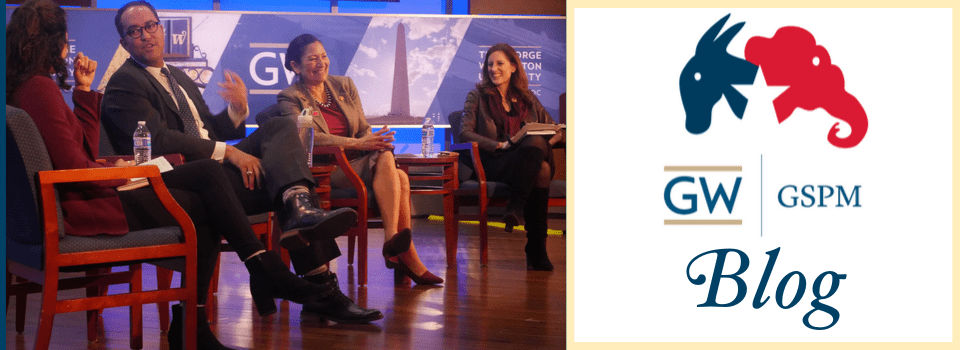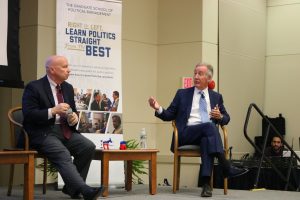(apologies to George Gershwin and Gene Kelly)
By Prof. Michael Cornfield
June 5, 2017
My Facebook reaction to the president’s announcement to exit the Paris climate agreement last Thursday was this:
GSPM grad Travis Taylor was skeptical:
Travis is right about the low priority Americans accord the environment as a campaign issue. A Reuters/IPSOS poll concluded just before the announcement was in keeping with the trend; environment was selected at the top issue by a mere 3% of voters, far below the top three of economy/jobs (20%), health care (18%), and terrorism (16%).
But I think Trump gave the issue a boost in salience. He is by far the most famous person on earth, maybe in human history; he gets more free media coverage than the next 1,000 people combined. His spotlight moves quickly from topic to topic, but the Paris exit was declared from the Rose Garden, it was a binary decision everyone understands, and the time frame for it is four years, not decades (the eco-time frame) or one day (the @realdonaldtrump time frame).
So I think the announcement sets off a messaging contest in sync with the 2018 and 2020 elections. Good issue positioning entails linking across standard categories. The battle will be over Paris AND job creation (especially job loss to foreign countries, Trump’s issue citadel), Paris AND energy prices (gas, of course, but also electric) and even Paris AND quality of life (hazards and disasters) in the battleground states and districts where voters live. We’ve already seen Dominion Power becoming an issue in the 2017 Virginia primaries.
Behind the messaging, this will be a battle of corporate clout: fossil-fuels against renewables, inland against coastal real estate. The fossil inlanders have a tremendous head start in the form of Koch-backed Americans For Prosperity (AFP) and its related influence organizations. By 2015, AFP had a $150 million yearly budget, 500 paid staffers including directors in 34 states, and 2.4 million activists advocating, among other things, a “No Climate Tax” pledge taken by three-fifths of GOP House members and over half of GOP Senate members in the 113th Congress (2013-2014).
The opposition to Trump’s announcement voiced by CEOs of big corporations, Michael Bloomberg, the governors of California, New York, and Washington state, and numerous mayors is a significant reaction. That’s all it is for now.



